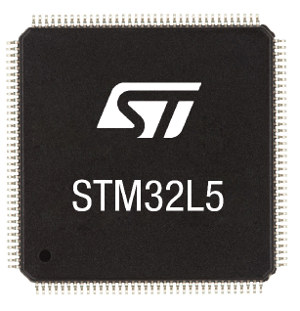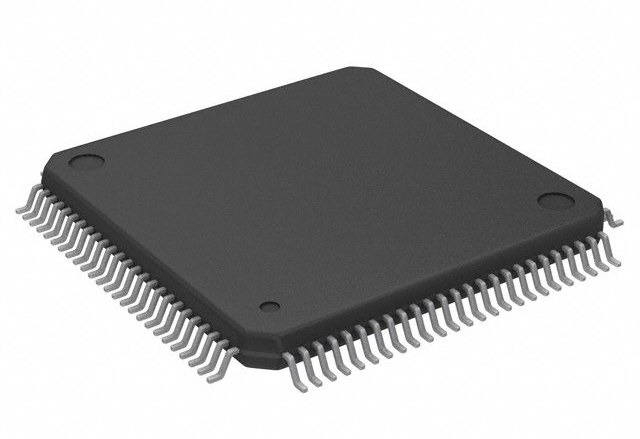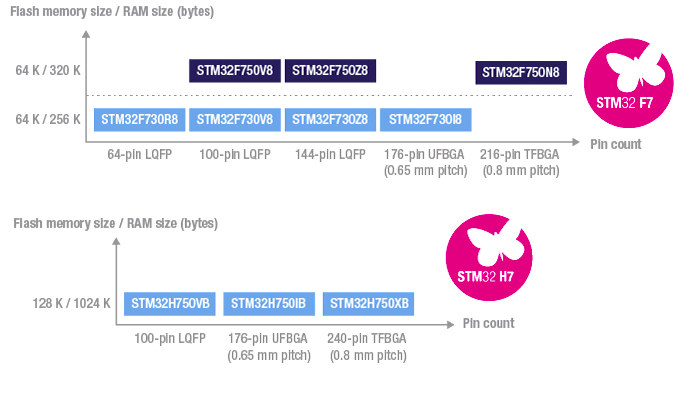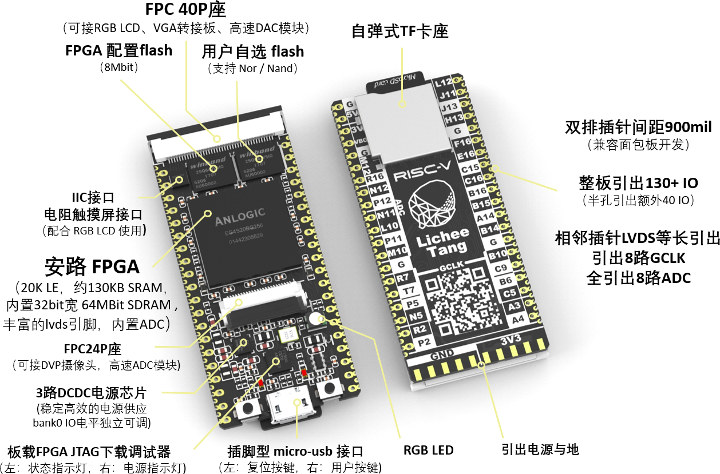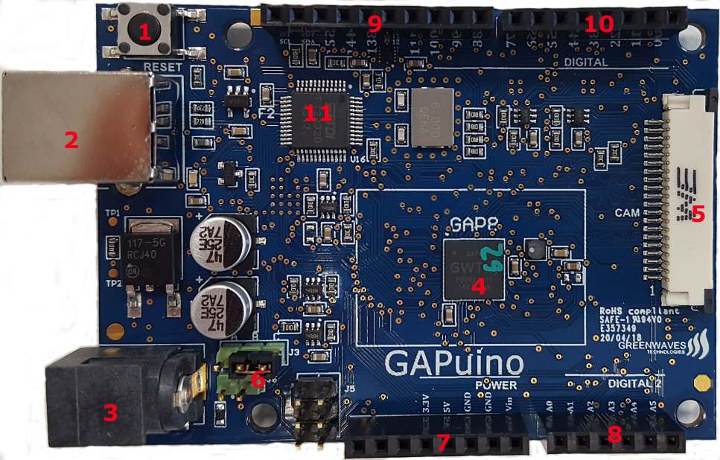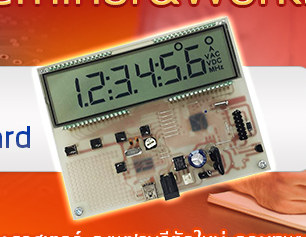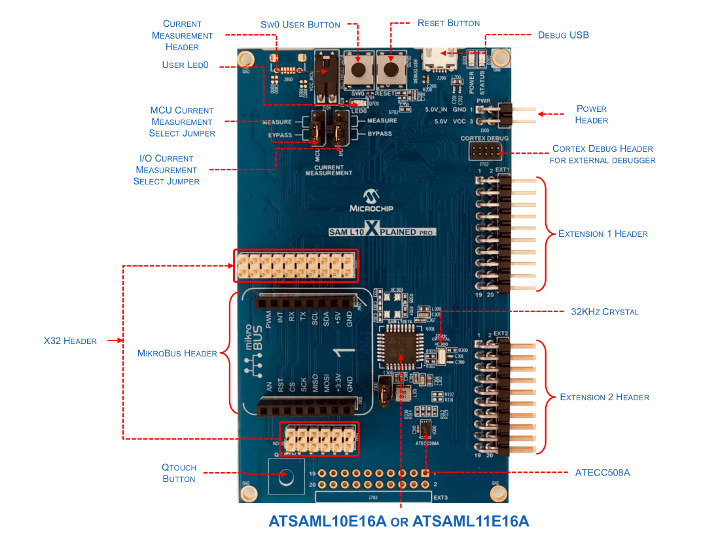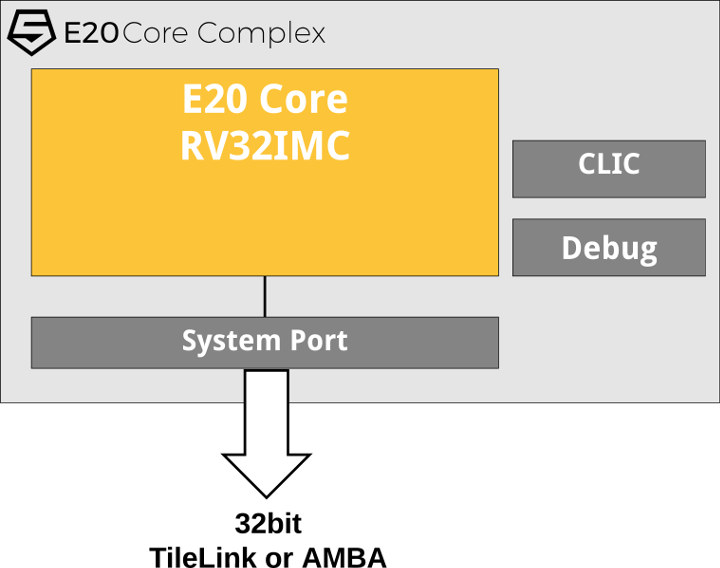STMicro STM32 microcontrollers have so far been based on Arm Cortex-M0/M0+, M3, M4, or M7 cores, although we’ve also seen a yet-to-be formally announced Cortex A7 variant shows up in Linux 4.17 with STM32MP157C. The company has very recently announced a new family, namely the STM32L5 series, powered by an Arm Cortex-M33 ARMv8-M 32-/64-bit TrustZone enabled core clocked at up to 110 MHz, and equipped with on-chip SMPS for easy low power efficiency, USB FS device, and USB type-C PD Controller. Two sub-families are part of the STM32L5 series: STM32L552 with 256 to 512 KB of Flash memory and from 48 to 144-pin packages. STM32L562 with 512 KB of Flash memory, and an additional encryption accelerator engine (AES, PKA, and OTFDEC). Besides the extra HW crypto block both share the same key specifications: MCU Core – Arm Cortex-M33 ARMv8-M core clocked at up to 110 MHz (+20% versus Cortex-M4) with […]
Retro-uC Open Source MCU Brings ZX Spectrum, Commodore 64 Back to Life (Crowdfunding)
If you’ve started your computing experience in the early eighties, you’ve probably used a ZX Spectrum, Commodore 64, and/or Atari ST home computers. Those products are long gone, except for collectors, but thanks to chips4makers project’s Zilog Z80, MOS 6502, and Motorola M68K cores are coming back to life via Retro-uC open source microcontroller. As a bonus, developers also worked on Retrino, a board following Arduino Mega form factor, and featuring Retro-uC MCU, as well as Retro-uC ProtoPlus with the chip fitted to a large Perf+ 2 style prototyping board, and Retro-uC Breadboard which can be inserted into a standard breadboard. Retro-uC Microcontroller Retro-uC specifications: Open source microcontroller with a Z80, MOS 6502 and Motorola 68000 core 4 kB of on-chip RAM 72x 5V digital general purpose I/O pins JTAG interface for programming the device Optionally bootable from external I2C flash memory I/O pins that can select the enabled core […]
STMicro STM32F7x0 & H7x0 Value Line Microcontrollers Deliver Cortex-M7 Performance at Lower Cost
STMicro introduces their first Arm Cortex-M7 microcontrollers in 2014 with STM32F7 series clocked up to 200 MHz. The next year, Atmel – now Microchip – announced SAM S70 & SAM E70 Cortex-M7 MCU families clocked at up to 300 MHz, STMicro up the ante to 400 MHz with their STM32H7 family in 2016, and more recently NXP launched their i.MX RT series “crossover” processor with the Cortex-M7 reaching up to 600 MHz. AFAIK, nobody has tried to push the clock speeds higher, but STMicroelectronics most recently unveiled STM32F7x0 & H7x0 Value Line microcontrollers with the same performance level as their earlier STM32F7 and STM32H7 MCUs, but with a lower price by reducing the amount of internal flash. Three Cortex-M7 value line families have been introduced: STM32F730 entry-level MCU @ 216MHz with 64KB flash, 8KB data / instructions cache, 256KB RAM and 16KB+64KB TCM (Tightly Coupled Memory). The microcontroller also includes […]
LicheeTang Anlogic EG4S20 FPGA Board Targets RISC-V Development
LicheePi has already made some interested little development board in the past with products such as LicheePi Zero, and the recently-announced SD card sized LicheePi Nano board, but their latest development board may ever be more intriguing. LicheeTang features Anlogic EG4S20 FPGA – unrelated to Amlogic – which run a RISC-V softcore, and all is packaged in a small small form factor as we’ve come to expect with LicheePi boards. LicheeTang specifications: FPGA – Anlogic EG4S20BG256 with 20K logic unit (LUT4/LUT5 hybrid architecture), about 130KB SRAM, 64MBit SDRAM Storage – 8Mbit flash, micro SD card slot, optional SPI NOR flash Expansion Connectors FPC40P socket for RGB LCD, VGA adapter board, or high speed (12-bit 1MSPS) DAC module FPC24P socket for DVP camera, or high speed ADC module Through holes and castellated holes exposing over 130 I/Os Debugging – FPGA JTAG chip connected over micro USB port Misc – RGB LED […]
GAPUINO GAP8 is a $229 RISC-V MCU Developer Kit for A.I. Applications
GreenWaves GAP8 is a low power RISC-V “MCU class” processor with eight compute cores optimized for artificial intelligence applications, and its main selling point is the ability to do tasks like computer vision or audio processing at very low power, even good enough to run on batteries. When we first covered GAP8 RISC-V processor at the beginning of the year, the company also mentioned a development kit comprised of GAPDUINO Arduino compatible board, a sensor board, and a QVGA camera module to experiment with the solution. The board and development kit are now easier to purchase as the devkit is sold on SeeedStudio for $229. GAPuino board specifications: SoC – GAP8 IoT Application Processor with 8x RISC-V compute cores, 1x RISC-V fabric controller core delivering up to 200 MOPS at 1mW and >8 GOPS at a few tens of mW Memory / Storage – HyperBus combo DRAM/Flash with 512 Mbit […]
LAPIS ML62Q1622 is a General Purpose 16-bit MCU with an LCD Driver
So this morning I received an email about some seminar & workshop about LAPIS microcontroller, including a free ML62Q1622 evaluation board. OK, good. But wait. Who is LAPIS? I have certainly never seen any projects with Lapis MCUs, and probably have never heard of them. It turns out OKI SEMICONDUCTOR Co.,Ltd. established in 2008 from a spin-off of Oki Electric Industry Co., Ltd, changed the company name in to LAPIS Semiconductor Co.,Ltd in 2011. LAPIS is also part of ROHM Semiconductor group. Anyway, it was a good opportunity to find out more about ML62Q1622 micro-controller, and related evaluation boards & tools. Lapis Semi ML62Q1622 is part of ML62Q1600 group of 16-bit microcontrollers whose block diagram is shown above. ML62Q1622 MCU key features & specifications: CPU – 16-bit RISC CPU (CPU name: nX-U16/100) clocked @ up to 32 MHz Coprocessor for multiplication and division Program Memory – 64Kbyte Data Memory – […]
Microchip Unveils SAM L10 & SAM L11 Arm Cortex-M23 MCU Families with Arm TrustZone for Armv8-M
Microchip has recently announced new SAM L10 and SAM L11 Arm Cortex-M23 MCU families, with the SAM L11 family featuring Arm TrustZone for Armv8-M that provides hardware isolation between certified libraries, IP and application code. SAM L10 & SAM L11 MCU Families Key features: Arm Cortex M23 Core @ 32 MHz Up to 64 KB Flash and 16 KB SRAM picoPower Technology less than 25 μA/MHz in active mode less than 100 nA in sleep mode Fast wakeup time: 1.5 μS Flexible power saving features Enhanced Peripheral Touch Controller (PTC) with improved water tolerance, noise immunity and responsiveness Security (for SAM L11 only) Chip-level tamper resistance Arm TrustZone technology Secure boot Secure bootloader Crypto accelerators Secure key storage Op amp ADC and DAC Package – VQFN32, TQFP32, WLCSP32, VQFN24, SSOP24 Microchip SAM L10 MCU achieved a ULPMark score of 405, or over 200 percent better performance compared to the nearest […]
SiFive Announces E20 and E21 RISC-V Cores for IoT and Wearables
SiFive has just announced the availability of their new E2 Core IP Series low-area, low-power microcontroller cores designed for use in embedded devices. Two standards cores are currently part of the new family: E21 providing mainstream performance for MCUs, sensor fusion, minion cores and smart IoT markets E20, the most power-efficient SiFive standard core designed for microcontrollers, IoT, analog mixed signal and finite state machine applications SiFive E20 MCU Core SiFive E20 Standard Core IP Key Features: RISC-V ISA – RV32IMC Machine Mode only 2-stage pipeline System Port for external memory accesses Core Local Interrupt Controller (CLIC) with 32 interrupts Advanced debug with 4 hardware breakpoints/watchpoints Performance – 1.1 DMIPS/MHz; 2.4 CoreMark/MHz Power / Clock / Area 28nm HPC – 0.58 mW; 725 MHz and up; 0.023 mm2 55nm LP – 1.3 mW; 250 MHz and up; 0.064 mm2 The company compares E20 core to Arm Cortex-M0+ core in the […]


